Gordon Murray Design leads UK consortium launching autonomous mobility vehicle
Gordon Murray Design and its consortium partners Delta Motorsport and itMoves are set to unveil ‘MOTIV®’, a unique and extremely versatile autonomous vehicle platform at the MOVE 2020 show in London this week.
Part-funded through the UK-government’s ‘IDP14’ programme, the new platform breaks the mould for future mobility development by creating a cost-effective, ultra-lightweight quadricycle vehicle platform that is designed to meet full passenger-car crash safety requirements. Alongside its industry-leading safety credentials, the new fully-electric unit is targeting significant cost savings and improved refinement over its rivals, while delivering the range capabilities, platform flexibility and plug-and-play versatility required by autonomous customers with personal mobility or commercial delivery requirements.
Designed with autonomy in mind, MOTIV is a single-seater ‘pod’, which provides the versatility of either personal transportation or last-mile deliveries. Engineered using Gordon Murray Design’s iStream Superlight® technology, the vehicle’s single-seater layout provides a private mobility experience for people moving through busy cities, many of whom typically travel in larger combustion-engined vehicles with single occupancy. MOTIV has the potential to significantly reduce congestion and emissions in city centres due to its fully-electric powertrain and compact footprint. The 1,628mm high pod measures just 2,537mm in length, with a width of 1,310mm.
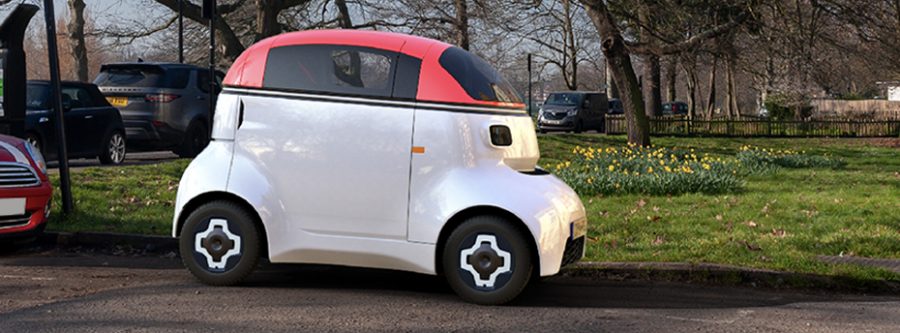
Due to its compact footprint and layout, MOTIV offers greater flexibility than any of its rivals. To further increase its practicality, MOTIV can be adapted in the future to seat multiple occupants; for wheelchair use; or even for commercial deliveries. In its goods transportation form, the platform can be altered to enable maximum load capacity, creating a volume of more than 1,100 litres.
For Mobility as a Service (MaaS) providers, MOTIV offers a unique proposition due to its compact size, extensive versatility and capable range. MOTIV provides the opportunity for MaaS providers to use a product that is ready for immediate adaptation to driverless use with any form of autonomous technology. MOTIV is the first of its kind to offer this degree of integration simplicity. To support its transition to autonomous road use, the consortium aims to partner with autonomous technology providers for multiple pilot studies. Following this final development phase, and dependent on application and legislation, the vehicle could be ready for mass production within two to five years.
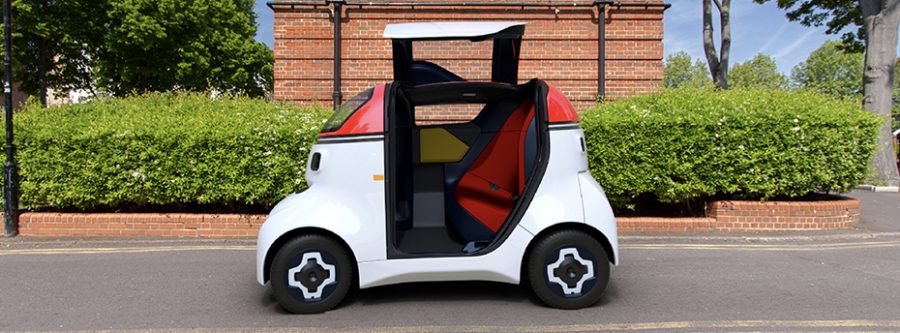
MOTIV is powered by a 20kW electric motor, and will be equipped with a 17.3kWh liquid-cooled battery pack providing a potential range of up to 100km. It will operate at speeds of up to 40mph (65kph), making it ideal for operating in urban and suburban locations. It is equipped with CCS charging capability and can recharge from 20% to 80% battery in just 40 minutes.
MOTIV utilises Gordon Murray Design’s iStream Superlight technology, with ultra-lightweight high strength extruded aluminium in the chassis (iFrame®), composite panels and door (iPanel®), plus aluminium suspension (iLink®) to ensure that vehicle weight is kept to a minimum. Using this technology ensures the weight of the vehicle is kept below 450kg (excluding batteries), which reduces the amount of raw materials used in the manufacture of the platform when compared to conventional vehicle manufacturing techniques, it also significantly reduces the size of battery required without impacting vehicle range. Also, MOTIV features an eye-catching gull-wing door that provides unrivalled accessibility and weather protection for passengers or loading goods.
Professor Gordon Murray CBE, Chairman of Gordon Murray Group, said: “MOTIV has the potential to transform future mobility. The best way to make any vehicle commercially viable and cost-effective, while delivering first-class efficiency, is to make it as light as it can be while retaining the highest levels of safety. With MOTIV we have used our iStream® technologies to create an ultra-lightweight body structure that delivers a vehicle that is compact, refined, safe and versatile, while remaining capable of significant range.”
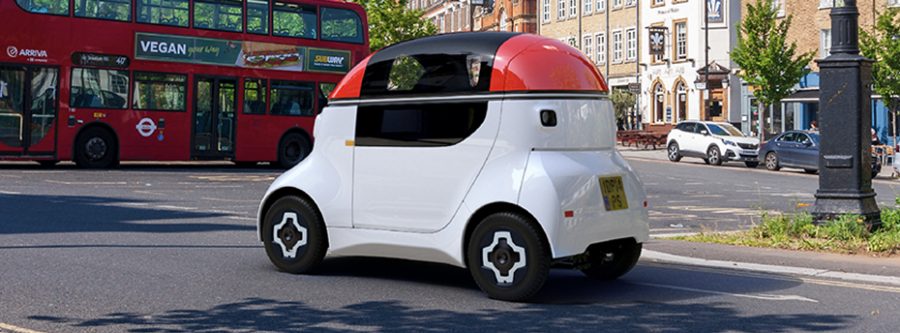
Electrification, hybridisation, and vehicle dynamics specialist Delta Motorsport is responsible for MOTIV’s power, motors and control systems. The platform uses Delta’s cutting-edge drive-by wire dedicated vehicle control architecture that operates the steering, propulsion and braking. The electrical integration expertise provided by Delta Motorsport utilises a ‘plug-and-play’ high-voltage system that significantly reduces cost, alongside production and assembly times. The braking and steering systems are also small and lightweight for minimal intrusion into cabin space.
Nick Carpenter, Engineering Director, Delta Motorsport, commented: “In developing the MOTIV, we’ve demonstrated that the future of mobility is lightweight, battery-powered and private. The control systems integrated into the platform prove that electrified vehicles need not be heavy and cumbersome, but can be lithe, lightweight and energy saving. MOTIV’s ‘plug-and-play’ high-voltage system makes it a truly viable solution to the world of autonomous driving.”
Advanced mobility and innovation specialist itMoves was responsible for the vision behind MOTIV, including the vehicle concept, strategy usability and visual image. The design of the vehicle is contemporary, while also remaining compact and city friendly. The interior of the vehicle provides an easy-to-access, comfortable space with an integrated HVAC system and room to perch a laptop.
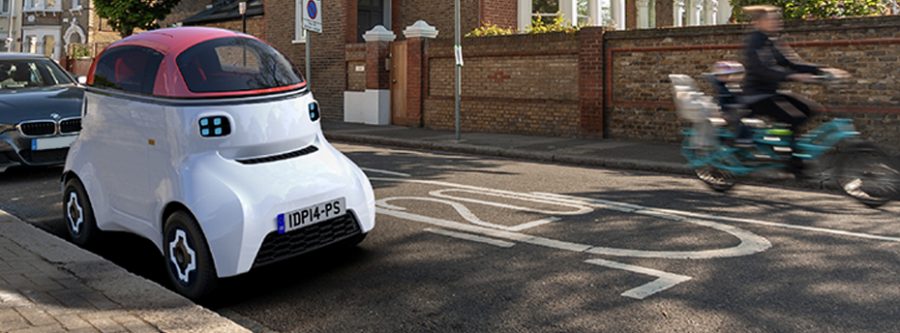
Jose Paris, Director of itMoves commented: “The MOTIV design philosophy is based on three points: small footprint, first class interior, and a city-friendly image. The small size takes advantage of the fact that most people commute and move around by themselves. Space in cities is at a premium, and it should not be wasted on empty seats. The spacious interior is comfortable and provides an up-to-date user experience, acting as a ‘third space’, to move around, work or relax in. Lastly, it is all wrapped up in a city (and citizen) friendly visual language that connects and integrates the vehicle with its surroundings in a non-threatening way.”
Homologating MOTIV as a quadricycle has various benefits for OEMs and MaaS providers. Firstly, it is lightweight. A quadricycle must weigh less than 450kg, this means that it is nimble and compact, which makes it a viable option for busy city streets. Gordon Murray Design has engineered MOTIV to conform to European passenger car (M1) crash safety standards, making it the first quadricycle to incorporate passenger car safety levels. This achievement is made possible by the high-strength properties of its iStream Superlight structure. Another benefit is that, as a quadricycle, it is simpler to produce than a car. The less complex production process cuts per-unit build time and reduces waiting times for OEMs and MaaS providers looking to enter the market.
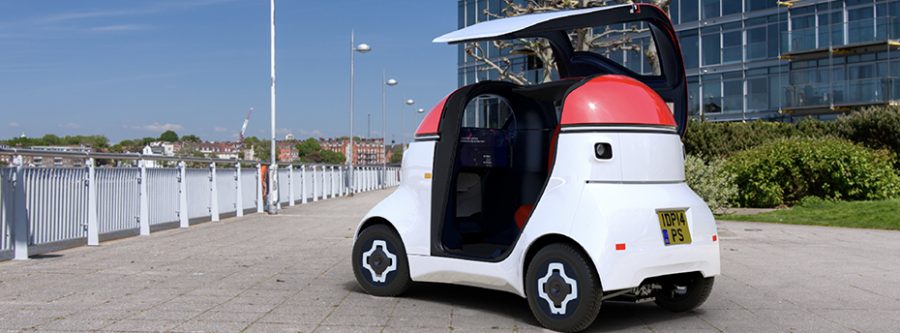
As a development test bed for autonomous systems, MOTIV’s autonomous-ready design is far easier for companies to convert than a conventional vehicle. Typically, a conversion of a regular vehicle to become autonomous requires more hardware, more time and has obvious compromises – conventional vehicles are comparatively large, cumbersome and inefficient.
As MOTIV was purpose-built as a platform for autonomy, testing of its driverless capabilities can begin from launch, which gives it the potential to be the first fully-autonomous single seater pod available on the market.
As a small footprint single seat vehicle, MOTIV offers a unique private solution in the market. A recent Transport for London survey showed that the rate of single occupancy within traditional cars and vans in London is on average greater than 60%. Across the UK, this number is as high as 80%* for local journeys. European occupancy rates show a similar trend with an average of 1.1 – 1.2 people per vehicle.
MOTIV is due to be launched at the MOVE ‘Mobility Re-imagined’ show on 11-12 February at the ExCeL in London and will be on the Gordon Murray Design stand.
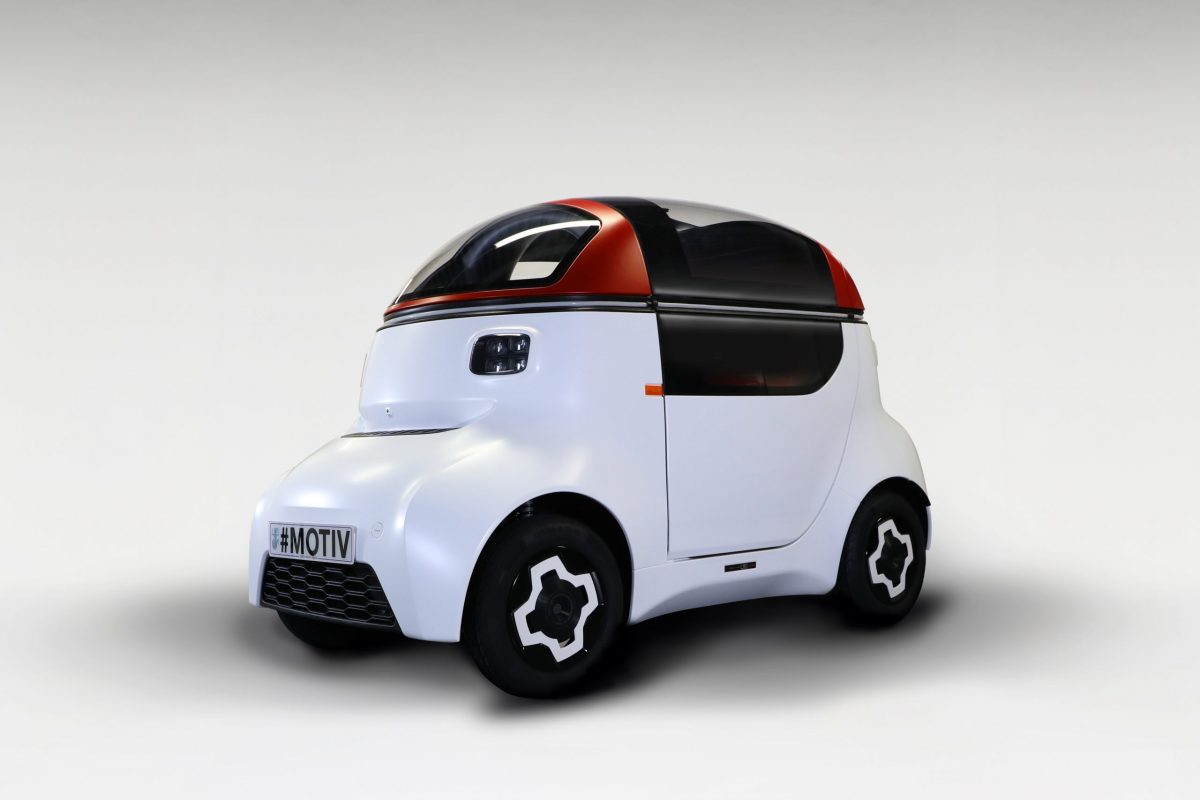
Gordon Murray Design – MOTIV – Technical specification
- Acceleration / top speed: 0-62kph 5 seconds
- Max speed: 40mph (65kph)
- Dimensions: Length 2,537mm / Width 1,310mm / Height 1,628mm
- Weight: <450kg (without battery)
- Chassis / Body: iStream Superlight structure. Designed in accordance with European M1 crash regulations
- Rear wheel drive layout
- Single gull-wing door – for easy ‘walk in’ entry / exit with contactless door opening system
Configuration
- L7e Quadricycle crash tested to M1 car standard
- Single seat configuration
- Autonomous ready
Powertrain / Battery
- Range 100km (WLTP)
- Run time 5 hour continuous
- Motor 20kW motor
- Nominal voltage 361V
- Max torque 4Nm
- Battery location Under floor
- Battery capacity 3kWh (total); 13.8KWh (usable)
- Battery cooling Liquid cooled battery, motor and power electronics
- Charging type CCS
- Fast charge time 40 minutes (20% – 80%)
Transmission
- Configuration Single speed transmission
Suspension
- Front MacPherson Strut front suspension system
- Rear Rear iLink suspension system
Steering
- Type Steering by wire
Wheels and tyres
- Wheel size 13-inch
Brakes
- Front Disc brakes
- Rear Regenerative braking
- Safety Anti-lock braking system
Interior
- Air conditioning Integrated A/C system
- Internal display 24-inch display with vertical lift





























